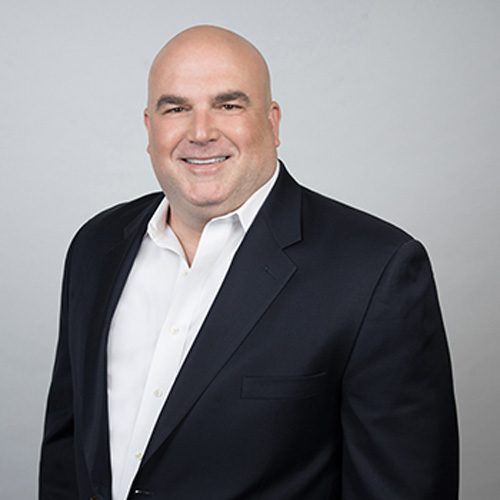On the lighter side of things, we ask Kent Breaux, Senior Vice President, EMEA at Proofpoint, what makes him tick.

What would you describe as your most memorable achievement?
To this day, my most memorable achievement has to be walking across the stage at my college graduation. That seems pretty small considering I am now in an industry with the best and brightest. However, I was one of the first in my family to achieve a degree. Plus, at that time, the only students that were called to the stage were those that graduated with honours. The point of pride wasn’t the honours, but that my family was able to see me make that walk.
What first made you think of a career in technology?
If I’m honest – it was a total accident. Or, as I tell folks who are looking for career advice, ‘take any opportunity to say yes to the unknown’.
I was on course to go to law school, when at a dinner party, I met someone who offered me a job manning a tech support line at odd hours that they were struggling to hire for. I took the job with no knowledge, experience, or idea that it would be a great career choice in the long run. In the end, it was the best decision I ever made and formed my belief that everyone should take the chances they are given.
What style of management philosophy do you employ with your current position?
Integrity is key. Whether it’s communicating with customers or my team, I pride myself on being open and honest and truly believing in what I am putting on the table.
I am a firm believer in an open-door, transparent leadership style, focused on helping employees to achieve their personal goals and figuring out what makes them tick. It’s all about making your team successful and satisfied, which in turn makes the business successful. I strive to ensure my team feel empowered to progress and get to where they want to.
What do you think has emerged as the technology trend of 2024 and why?
This year we have seen a significant focus on identity theft – which is ultimately at the beginning of the cyber ‘attack chain’. Attackers now realise it’s more effective, faster and cheaper to steal credentials and log in than trying to hack through technical controls. Once they have compromised just one identity, they can move laterally through corporate networks. In other words, identity is the new attack surface, and ultimately, the new cyber-risk perimeter.
What do you currently identify as the major areas of investment in your industry?
It would be amiss not to mention Artificial Intelligence (AI) and the role it plays in the cybersecurity industry. There’s no doubt that AI in the hands of cybercriminals can supercharge social-engineering threats.
However, as AI-driven threats evolve, humans alone can no longer scale to sufficiently secure against such attacks. From a defensive point of view, AI/ML will be critical components of a robust cybersecurity strategy and organisations should look to invest in solutions that encompass this technology.
How do you deal with stress and unwind outside of the office?
I spend most my time outside the office with my family (who have all moved across to Paris with me), whether it’s spending quality time together on the weekend, coaching their football games or learning new languages together. Water-based activities are my passion – from scuba-diving to fishing, which comes from being raised on the coast of Louisiana. I also enjoy skiing – especially the apres-ski.
If you could go back and change one career decision, what would it be?
My career has been built on risk taking – with many start-ups, which have had outcomes from shutting down to IPOs. Though a good question, I don’t regret even the ones that didn’t pan out. Ultimately, I have had a blessed career with more successes than failures, and the successes are a result of the failures. So, no regrets, only learnings.
What are the region-specific challenges when implementing new technologies in Europe?
Technology vendors cannot simply look as Europe as a single market. The European market is unique due to the vast array of cultures, ways of working and ways of securing deals. Each country has varying laws and regulations, meaning the region is more complex than global counterparts and each country needs to be addressed in a unique way.
To overcome these challenges, we work with great people in all markets across the region, tailoring what has been already proven to be a great strategy, and tweaking it to the individual needs of different regions and countries within Europe.
What changes to your job role have you seen in the last year and how do you see these developing in the next 12 months?
It’s no secret that the current global economic situation is impacting many sectors – and the technology industry is not immune. This climate is a difficult one for CISOs and security teams too – some may be seeing their budgets cut or are having to lose team members.
A big priority for me is to continue to support our customers as navigate this very complicated security landscape.
What advice would you offer somebody aspiring to obtain a senior position in your industry?
Integrity, transparency and honesty (three words that wouldn’t necessarily come straight to mind when thinking of cybercriminal activity where the end goal is to scam victims). But as anyone looks to progress a career in this industry, these aspects are of upmost importance.
We are in a crowded industry, with many vendors claiming they can do the same thing – you must be able to put yourself in a customer’s shoes and demonstrate how you can really help them and stand by that, rather than simply trying to close another deal.


